What is a function whose graph forms a straight line called?
linear function
What is the range of this function?
A. (-5, -3, -1, 3) B. (-5, -1, 3, 4)
C. (-5, -1, 3) D. (-5, -3, 3, 4)
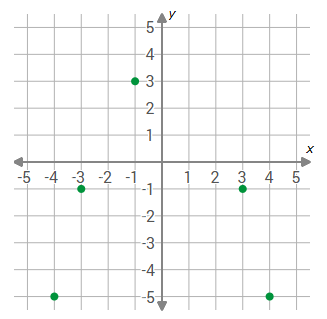
C. (-5, -1, 3)
Use the following function rule to find f(28).
f(x) = 140/x + 5
10
Solve for z.
12 - 4z = –7z
-4
What does the letter b refer to in a slope-intercept form equation?
y = mx + b
y-intercept
What test do we use to determine if a relation is a function?
The Vertical Line Test.
What is the range of this function?
(–10,0)
(10,1)
(–9,–4)
(2,5)
(–5,–9)
(-9, -4, 0, 1, 5)
Use the following function rule to find f(12).
f(x) = (10 − x)2
4
Solve for m.
-6
What does the letter m refer to in a slope-intercept form equation?
y = mx + b
slope
Is the relation a function?
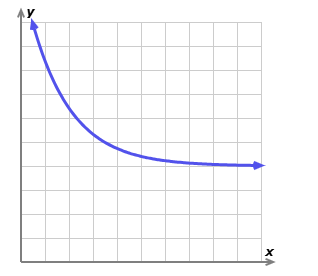
Yes
What is the domain of this function?
A. (-5, -4, 1, 4) B. (-5, -4, 2, 3)
C. (-4, 1, 2, 4) D. (-4, 2, 3, 4)
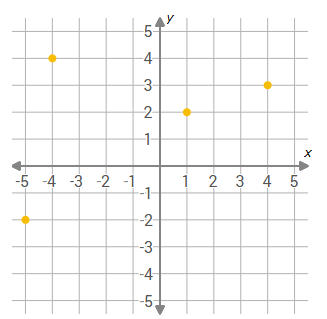
A. (-5, -4, 1, 4)
Use the following function rule to find f(2).
f(x) = –4(9)x
-324
Solve for h.
-9
What is the y-intercept of the following equation:
y = 4x - 3
b= -3
Is the relation a function?
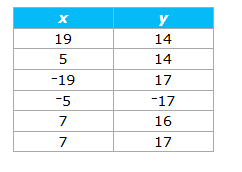
Yes
What is the domain of this function?
(–4,10)
(6,2)
(1,0)
(3,–3)
(–3,–1)
(-4, -3, 1, 3, 6)
Use the following function rule to find h(c+7). Simplify your answer.
h(y)= y – 2
c + 5
Solve for j.
19
The equation of line j is:  Line k is parallel to line j. What is the slope of line k?
Line k is parallel to line j. What is the slope of line k?
-5/9
Which of these relations is a function? A, B, C, or D
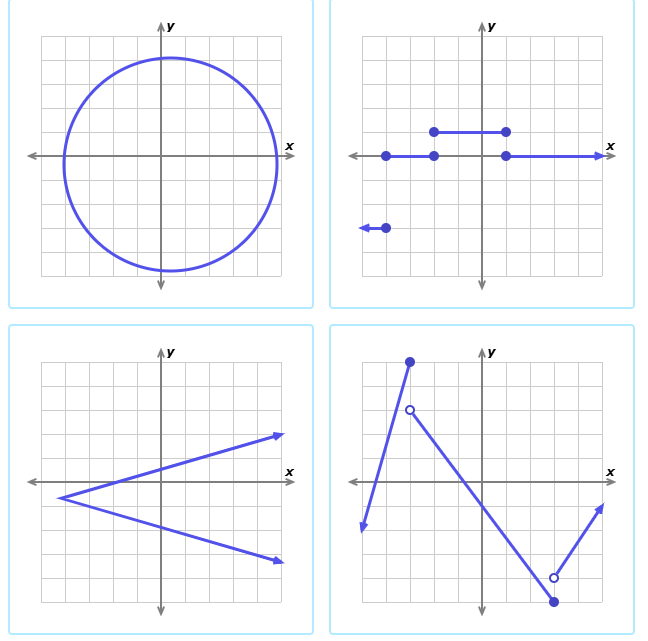
D
What are the domain and range of this function?
(–10,–2)
(1,10)
(6,1)
(–1,–7)
(5,–2)
Domain: (-10, -1, 1, 5, 6)
Range: (-7, -2, 1, 10)
Use the following function rule to find h(10b–9). Simplify your answer.
h(r) = 2r + 5
20b - 13
Solve for p.
1.9 + 0.16p = 0.04p + 2.1 + 0.1p
10
Find the slope of the line that passes through
(10, 7) and (1, 2).
5/9